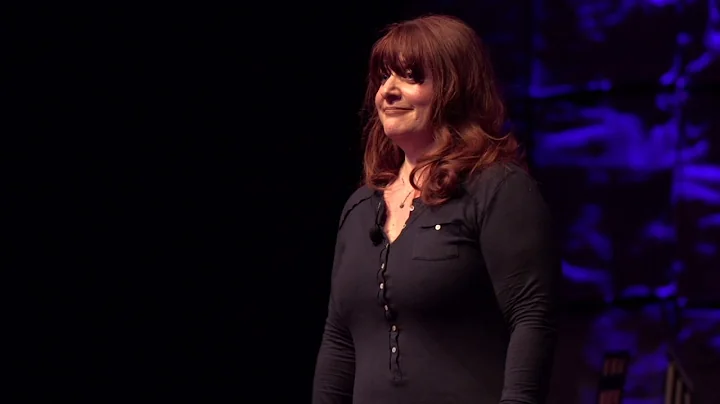1. Threatening

When children repeatedly do forbidden things, we usually like to scare them by saying "If you... again, I will...". As a result, the more forbidden it is, the happier the child will do. Only children who have no self-esteem or are too gentle will be frightened by such warnings from their parents.
For example: A child always shoots water at his friends with the water gun he just bought. Mom said: If you dare to shoot water at her again, I will throw away your water gun. Most children will still challenge their parents' authority.
Actually, my mother can put it another way: Water guns are not used to shoot people. You can shoot into the water. If the child doesn't listen, the mother can just take away his water gun and tell him: Your little friend is not here to spray water on you.
2. Bribe

"If you get a hundred points in the exam, I will take you to eat KFC ." "If you do your homework now, I will let you play with your mobile phone later."
How about such words? Sound familiar? In fact, bribes similar to "If you... I will..." may motivate children in the short term, but they cannot motivate children to persist in the long term.
Even the negative effects of doing this are:
(1) This sentence structure conveys distrust in the child's ability;
(2) Children tend to make mistakes intentionally in order to get rewards from their parents for making them better. ;
(3) makes the child easy to bargain and blackmail when doing things, and he will demand more and more rewards and benefits.
3. Promise

promised the child to take him to the park to play on the weekend, but it rained on the weekend, or there was an emergency at work, or other accidents occurred, resulting in the failure to go. As a result, the child cried and made a fuss, shouting that you promised.
Parents should not make promises to their children easily, as this will bring unrealistic expectations to their children. If a parent fails to deliver, the child will feel cheated.
Parents should also not make their children promise bad behavior in the past or good behavior in the future. If a child makes a promise but does not express it from his heart, this is also a kind of deception.
4. Sarcastic

"You are deaf, right? No matter how many times I say it, you just can't hear."
"Are you brainless? You can't do such a small thing well."
These words caused a personal attack on the child. It is easy for children to fight back. No matter what happens, parents should not belittle their children's image, regardless of whether there are outsiders present.
5. Parental authority

Between parents and children, children are weak beings, and parents have absolute authority. But don't abuse your authority to suppress and control your children.
Authority requires brief and selective silence. There is a saying among the people that "if one sentence fails, a thousand sentences will be useless." The less you say, the more effective it will be.
And sometimes, silence can be a kind of power.
Eight-year-old Yilin injured his leg, but this did not prevent him from playing with his classmates in the community at night. Early the next morning, he told his mother that his legs hurt and he wanted to take leave from school.
After hearing this, my mother fell silent. After a few minutes of unbearable embarrassment, Yilin said, "Mom, I'd better go to school." After saying that, he quickly carried his schoolbag and went out.
If the mother hears that he does not want to go to school and says, "Didn't you go out to play last night?" then the child will definitely find a lot of excuses to argue for himself.
6. Lies

Four-year-old Cola said angrily to her mother: "I hate my sister, I hate her." Her mother was shocked and asked: "Why?"
Cola said: "Because my sister ate the cake I put in the refrigerator. "What's the big deal? Just eat it and I'll buy it for you tomorrow,"
said, stamping her feet and yelling, "I don't want to,"
's mother said angrily. He said: "You are not allowed to speak like this. You should love your sister and not hate her."
Cola cried loudly and said: "I want to say hate, and I want to hate her.""
Mom was so angry that she slapped her backhand and said, "Do you still hate your sister?" "
Cola was scared. In order not to be beaten, she could only sob and said: "I don't hate my sister anymore. "
The mother held the Coke and said, "This is a good boy. "
From then on, Coke knew that if you tell the truth, you will be beaten, and if you lie, your mother will be happy.
There are basically two reasons why children lie. One is that telling the truth is not allowed; the other is that they are afraid of being punished and use lies to defend themselves. .
In fact, lies sometimes reveal the child's true intentions. Parents should understand his true intentions instead of denying his intentions or blaming him.
If parents want their children to have an honest character, they must be able to listen. You must be able to listen to unpleasant truths.
Dealing with dishonesty:
Prevent children from lying defensively and do not create opportunities for children to lie.
For example: The teacher obviously called. When parents say that their children are late, they pretend not to know. This gives the child the opportunity to lie because he is afraid of being criticized. Parents should directly say: Why are you late today?
Avoid asking "Why?" ? "For children, sometimes "why" means that the parents are unhappy, disapproving, and disappointed.
For example: "Why do you always procrastinate? "Why do you always talk and don't listen?" "Wait for this kind of rhetorical question without an answer.
7. Stealing

It is very common for children to take home things that do not belong to them. Because it takes a long time and patience to understand the ownership of items. Parents do not need to. There is no need to preach or insult children in the face of danger, but they must guide their children to the right path with dignity.
When you see your children taking other people's things home, parents should speak to them calmly and seriously. , this thing is not yours, give it back.
When we are sure that the child took money from our wallet, we should not ask the child by asking questions, but should directly say, "You took the money from my wallet." Return the money you took from me.
If the child denies it, don’t argue with him, but say seriously, I know you took it, and you must return it to me.
When the child returns the money, tell him. : If you need money, you can tell me and we can discuss it together.
Don't call your child a thief or a liar, and don't predict his bad future. This is very important, because the child's future is hidden in the mouth of his parents.
8. Politeness

We have taught our children to be polite when others give us things, and to say "goodbye" when they leave.
But when children forget to say thank you to others, parents will. He will remind you and say: "Auntie gave you something, what should you say? ” or “I didn’t even say thank you, that’s rude.” ”
In fact, it is impolite to teach children to be polite in such a rude way in front of others. If you want your children to be polite, parents need to set an example and teach by words and deeds.
As a parent, if someone else gives something to their child, You can say: "Thank you for giving him such a beautiful thing." When the child hears it, he will naturally say thank you.
So to teach children to be polite, is your education method polite?
Follow me and pay attention to family education every day. A little family education knowledge to help you become a smart parent
.

![Truth Potion[]Slight Drarry[]Sad Harry/Harry Angst - DayDayNews](https://i.ytimg.com/vi/1fIIaukEWCo/hq720.jpg?sqp=-oaymwE2CNAFEJQDSFXyq4qpAygIARUAAIhCGAFwAcABBvABAfgB_gmAAtAFigIMCAAQARhdIF0oXTAP&rs=AOn4CLDqmjimbnUAHSeudGBxkevjrIGxCg)



![[MULTI SUB] CEO Falls in Love with a Fake Bride #drama #jowo #shortdrama #ceo #sweet #甜宠 - DayDayNews](https://i.ytimg.com/vi/DUCEzp-Pc0w/hq720.jpg?sqp=-oaymwEcCNAFEJQDSFXyq4qpAw4IARUAAIhCGAFwAcABBg==&rs=AOn4CLDrhl_MwijL4WcoKJ5tOvXREobJbQ)














